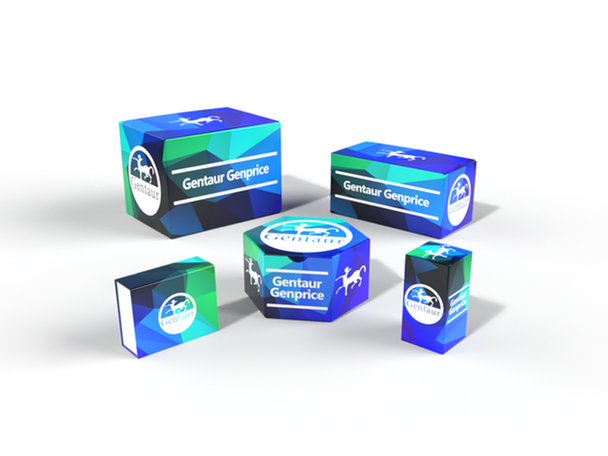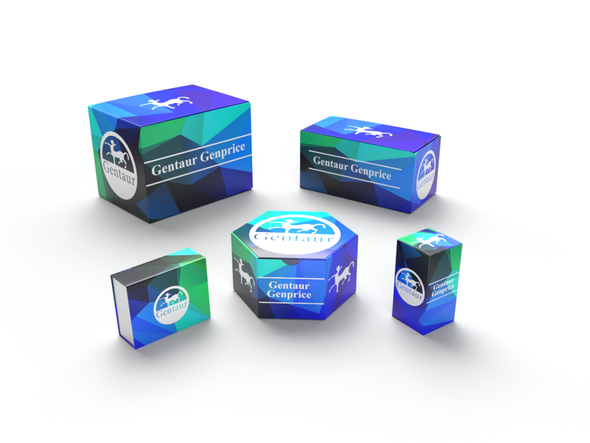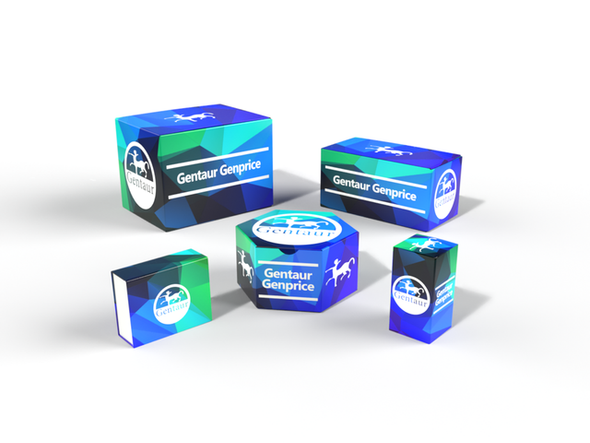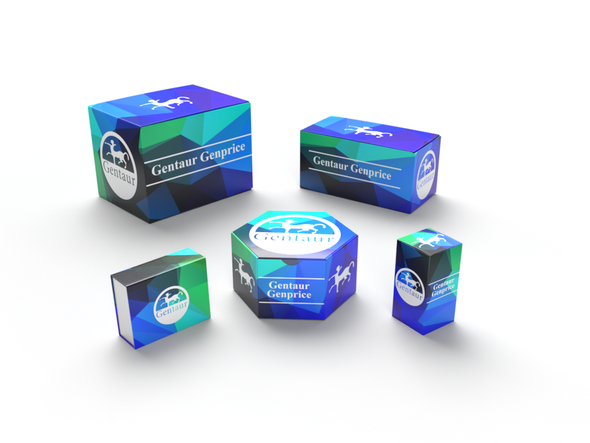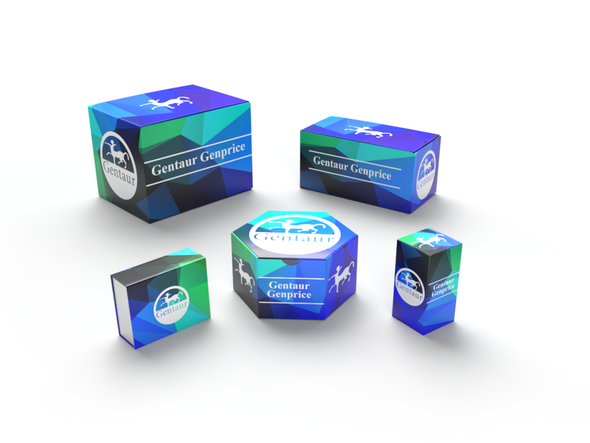Description
Cortactin (phospho Tyr466) Antibody | 79-489 | Gentaur UK, US & Europe Distribution
Host: Rabbit
Reactivity: Human, Mouse
Homology: N/A
Immunogen: Cortactin (Phospho-Tyr466) antibody was raised against a peptide sequence around phosphorylation site of tyrosine 466 (P-V-Y (p) -E-T) derived from Human CORTACTIN.
Research Area: Phospho-Specific
Tested Application: WB
Application: Western Blot: 1:500~1:1000
Specificiy: This antibody detects endogenous level of Cortactin only when phosphorylated at tyrosine 466.
Positive Control 1: N/A
Positive Control 2: N/A
Positive Control 3: N/A
Positive Control 4: N/A
Positive Control 5: N/A
Positive Control 6: N/A
Molecular Weight: 85 kDa
Validation: N/A
Isoform: N/A
Purification: Antibodies were purified by affinity-chromatography using epitope-specific phosphopeptide. Non-phospho specific antibodies were removed by chromatogramphy using non-phosphopeptide.
Clonality: Polyclonal
Clone: N/A
Isotype: N/A
Conjugate: Unconjugated
Physical State: Liquid
Buffer: Antibody supplied in phosphate buffered saline (without Mg2+ and Ca2+) , pH 7.4, 150mM NaCl, 0.02% sodium azide and 50% glycerol.
Concentration: 1 mg/mL
Storage Condition: Store antibody at -20˚C for up to one year.
Alternate Name: EMS1, PKB, RAC, Amplaxin, CTTN, EMS1, SRC8
User Note: N/A
BACKGROUND: Cortactin is overexpressed in breast cancer and squamous cell carcinomas of the head and neck. The encoded protein is localized in the cytoplasm and in areas of the cell-substratum contacts. This gene has two roles: (1) regulating the interactions between components of adherens-type junctions and (2) organizing the cytoskeleton and cell adhesion structures of epithelia and carcinoma cells. During apoptosis, the encoded protein is degraded in a caspase-dependent manner. The aberrant regulation of this gene contributes to tumor cell invasion and metastasis. Two splice variants that encode different isoforms have been identified for this gene.

